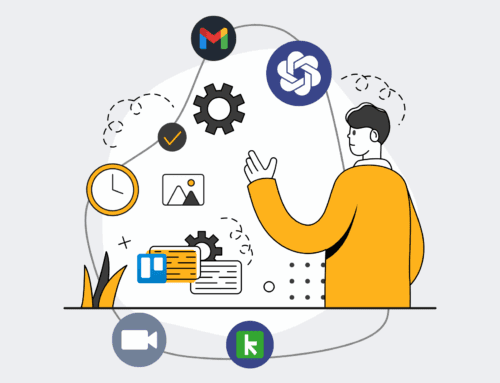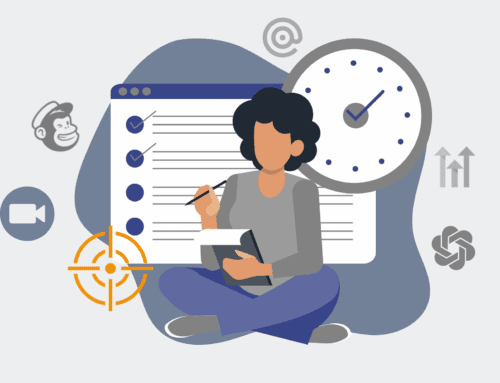Demystifying Support Tiers: From Basic to Enterprise-Level HR Vendor Assistance
In the landscape of modern HR and recruiting technology, the choice of a vendor extends far beyond the features a platform boasts. A critical, yet often overlooked, component of that decision is the level of support an HR tech provider offers. For business leaders, understanding the nuances of different support tiers isn’t just about troubleshooting; it’s about safeguarding operational continuity, maximizing ROI, and ensuring your team’s productivity isn’t derailed by technical hitches. At 4Spot Consulting, we’ve seen firsthand how an inadequate support structure can turn a promising tech investment into a persistent bottleneck, costing time, money, and sanity.
Navigating the various support levels—from basic reactive assistance to proactive, strategic enterprise partnerships—requires a clear understanding of what each tier truly entails and how it aligns with your organization’s specific needs and scale. It’s not a one-size-fits-all scenario, and making an informed choice can be the difference between seamless operations and frustrating downtime.
The Spectrum of HR Tech Support: More Than Just a Helpdesk
When an HR vendor discusses “support,” it encompasses a broad range of services designed to help you implement, maintain, and optimize their software. This includes everything from initial onboarding and configuration assistance to bug fixes, feature requests, and strategic guidance. The key differentiator across tiers is typically the speed of response, the depth of expertise, the channels available for communication, and the proactive nature of the engagement.
Basic Support: The Foundation of Assistance
Most HR tech solutions, especially those targeting smaller businesses or offering a freemium model, will include a basic level of support. This tier typically offers a reactive approach, primarily focused on addressing immediate technical issues and answering common questions. You might expect:
- Channel Limitations: Often limited to email or a web-based ticketing system. Phone support, if available, might be restricted to specific hours or critical issues.
- Response Times: Standard business hours, with resolution times varying based on ticket volume and issue complexity.
- Self-Service Resources: Extensive knowledge bases, FAQs, and community forums are common, encouraging users to find solutions independently.
- Focus: Primarily break-fix issues and basic usability questions.
While fundamental, basic support is designed for users with straightforward needs and internal resources capable of handling more complex configurations or strategic considerations. It’s functional but rarely proactive or deeply integrated with your operational goals.
Mid-Tier Support: Enhanced Responsiveness and Guidance
As organizations grow and their HR tech stack becomes more integral to daily operations, the need for more robust support becomes apparent. Mid-tier support, often an upgrade from basic packages, introduces enhanced features designed to provide more timely and comprehensive assistance:
- Multiple Channels: Often includes dedicated phone lines during extended business hours, live chat, and faster email response SLAs (Service Level Agreements).
- Dedicated Resources (Sometimes): You might gain access to a specific team or a named contact for your account, though not necessarily a dedicated account manager.
- Broader Scope: Beyond troubleshooting, this tier might offer limited configuration assistance, basic training refreshers, and advice on leveraging core features.
- Proactive Updates: Regular communications about upcoming features, maintenance, and best practices.
Mid-tier support bridges the gap for companies that need reliable assistance without the full investment of an enterprise package. It prioritizes efficiency and ensures that common operational challenges can be resolved without significant disruption.
Enterprise-Level Support: A Strategic Partnership
For large enterprises, high-growth companies, or those with complex, integrated HR ecosystems, enterprise-level support is not merely a convenience—it’s a strategic necessity. This tier transforms support from a reactive service into a proactive partnership focused on optimization, risk mitigation, and continuous improvement. What defines enterprise support?
- Dedicated Account Management: A named technical account manager (TAM) or customer success manager (CSM) who understands your specific business goals, system configurations, and long-term strategy. This individual acts as your primary point of contact and internal advocate.
- Premium SLAs: Guaranteed rapid response times, 24/7/365 coverage for critical issues, and expedited resolution paths. This minimizes downtime and protects your most valuable asset: your people’s productivity.
- Proactive Monitoring & Optimization: Vendors might offer system health checks, performance reviews, and proactive recommendations for optimizing your usage, often tied into your business KPIs.
- Strategic Consulting: Access to expert consultants for advanced configurations, integration planning, feature adoption strategies, and roadmap discussions. This can be crucial for initiatives like automating recruiting workflows or ensuring CRM data integrity.
- Prioritized Bug Fixes & Feature Requests: Your organization’s feedback and needs carry more weight, potentially influencing the product development roadmap.
- Specialized Training & Workshops: Tailored training sessions for your teams, ensuring maximum adoption and proficiency.
Enterprise support is designed for organizations where HR technology is a core strategic asset, and any disruption or inefficiency has significant business impact. It aligns the vendor’s success with your operational excellence, providing a layer of security and expertise that basic tiers simply cannot offer.
Making the Right Choice for Your HR Tech Investment
Choosing the appropriate support tier isn’t about overspending or underspending; it’s about alignment. Consider your organization’s size, the complexity of your HR operations, your internal IT and HR tech expertise, and the criticality of the system in question. A system handling payroll, for example, demands far more robust and immediate support than one managing basic employee surveys.
At 4Spot Consulting, our strategic approach, encapsulated in frameworks like OpsMesh and OpsMap, emphasizes that technology decisions must always be tied to measurable business outcomes. This extends directly to support. When we help clients automate their HR and recruiting processes—integrating systems like Keap CRM with AI tools via Make.com—we rigorously evaluate the vendor’s support capabilities as part of our due diligence. Why? Because the best automation in the world is only as good as the system it runs on and the support that keeps it running.
Investing in the right support tier for your HR tech is not an expense; it’s an insurance policy for your operational efficiency, data integrity, and ultimately, your team’s ability to focus on high-value work. Don’t let an afterthought about support become a roadblock to your strategic HR goals.
If you would like to read more, we recommend this article: The Unsung Heroes of HR & Recruiting CRM Data Protection: SLAs, Uptime & Support








